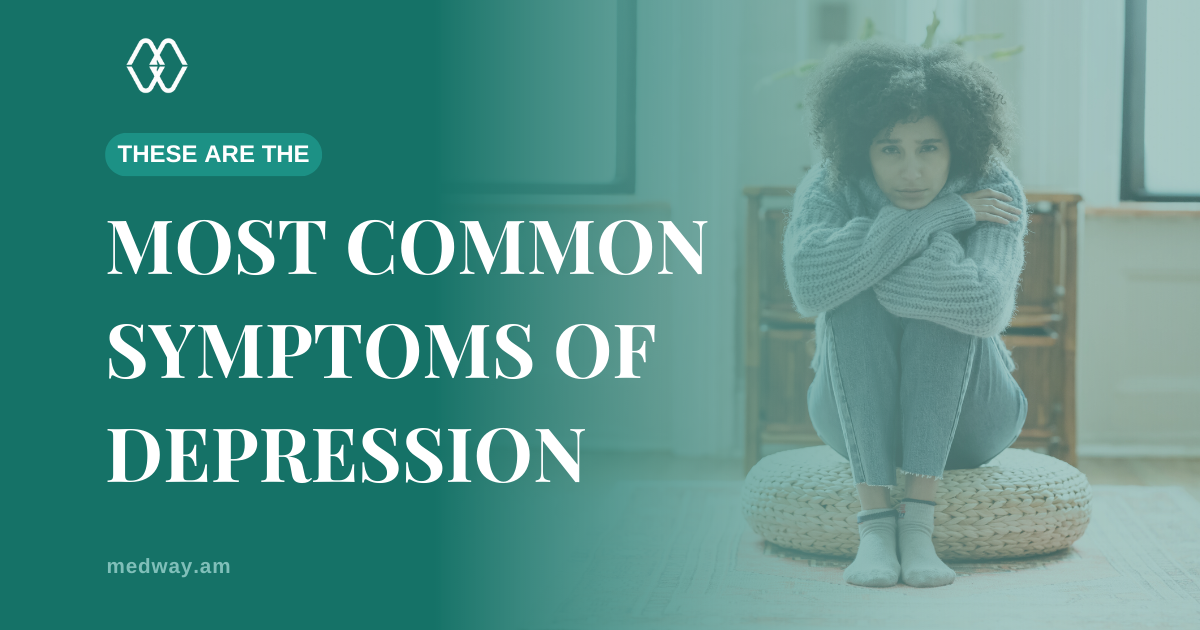
Depression is defined as a mood disorder that will lead you to feel chronically sad and without any interest. More formally, it is called clinical depression or major depressive disorder. If not treated, it can have a negative impact on your day-to-day life and cause numerous emotional and/or physical problems. Generally speaking, it might also have an effect on how you think, behave, and feel. It should be well noted that depression is not a sign of weakness and contrary to popular belief, you cannot just “snap out of it.” Instead, it typically needs long-term treatment, which should not be discouraging in any way, since most people with depression eventually feel much better with either psychotherapy or medications or even both.
But now, you may be wondering what the symptoms of depression are. Well, in this article that is exactly what we will be covering. We will be going over some of the most common symptoms of depression so that you can look out for them and consult with your doctor if you may be experiencing any of them.
- Sleep Disturbances:
As Doctor Leuchter describes - “Sleep disturbances can also include difficulty falling asleep, waking up too early in the morning or waking frequently during the night.” So, by definition, sleep disturbances are not limited to too much sleep but can include any sort of irregularity in the regular pattern of sleeping. For example, not getting out of bed or not going to bed.
- Appetite or Weight Changes:
Unintended weight gain or weight loss can also be a sign of depression. Keep in mind that this kind of experience will be different for each person. Some individuals may constantly be hungry, have many cravings, binge eat or overeat whereas others may completely lose their appetite and won’t be hungry for long periods of time.
- Loss of Interest:
Depression can lead people into losing interest in things that previously gave them pleasure or that they enjoyed doing. A common example is decreased libido or desire for sex. However, it is not limited to one’s sex drive, loss of interest can include areas such as the hobbies you once looked forward to, hanging out with the people you love most, or working on things you used to greatly care about.
- Fatigue:
As a matter of fact, one part of the reason why you may develop a loss of interest, physiologically speaking, is due to the fact that one may undergo severe fatigue, which is defined as the feeling of constant weakness or tiredness. It can also be thought of as a loss of energy and may be accompanied by unexplained muscle aches and body cramps.
- Anxiety:
There are many different forms of anxiety that one can experience, but generally speaking, it can be thought of as unwanted, random, and/or debilitating worries or fears that can be mild or severe. Anxiety can lead one to have a rapid heart rate and breathing, sweat more, and or have muscle twitching.
One specific kind of anxiety may revolve around social situations, for instance. In any case, studies have shown that people who are diagnosed with depression tend to also have a history of anxiety.
- Difficulties in Concentration:
Depression can also lead to difficulties in focusing or concentrating to an extent that it affects everyday decision-making, thinking, and memory abilities. According to Doctor Leuchter, this can be worrisome.
- Suicidal Thoughts:
The more life-threatening and serious indications of severe depression can be self-harm or even suicidal ideations. People suffering might have recurring and obsessive thoughts about harming themselves or even attempting suicide.
Recognizing and admitting that you are depressed is an essential part of getting the help needed. Therefore, if you or a loved one is showing any of the above mentioned signs or symptoms for over a few weeks, then the best course of action is to talk to a healthcare professional or your primary care physician to discuss what is best for you. Again, the very first step to overcoming depression and getting back to feeling like yourself once more is to seek help.
It is also worth mentioning that depression affects millions of people in the world, but fortunately, there are ways to get through it. In fact, there are countless treatments of different sorts - from behavioral therapy to medications.